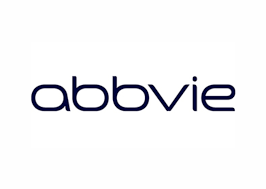Risankizumab Results in High Proportion of Clinical Remission in Ulcerative Colitis Patients
There were no new safety signals identified from the COMMAND trial.
Credit: AbbVie

New data shows risankizumab (Skyrizi) resulted in clinical remission for patients with moderately to severely active ulcerative colitis.1
AbbVie announced on June 15 the positive top-line results from the phase 3 COMMAND maintenance study evaluating risankizumab 180 mg and 360 mg subcutaneous injections for this patient population.
COMMAND Trial
The results show the treatment met the primary endpoint of clinical remission evaluated with an Adapted Mayo Score at week 52 as well as various secondary endpoints.
In the study, the investigators re-randomized patients from the phase 2b/3 INSPIRE study to receive either risankizumab 180 mg subcutaneous, 360 mg subcutaneous, or withdrawal from risankizumab treatment.
Approximately 75% of the patient population previously failed at least 1 advanced therapy for ulcerative colitis, including biologics, JAK inhibitors, and S1P receptor modulators.
Efficacy
The results show a higher proportion of patients treated with either dosage of Risankizumab achieved clinical remission at week 52—40% in the 180 mg group and 38% in the 360 mg group—compared to 25% in the induction-only control group (P <0.01).
The investigators also found 51% of patients in the 180 mg group and 48% of patients in the 360 mg cohort achieved endoscopic improvement at week 52, compared to 32% of participants in the induction-only control group (P <0.001). In addition, more patients in the risankizumab groups achieved histologic endoscopic mucosal improvements at week 52—43% and 42%, respectively—compared to 23% in the induction-only group (P <0.001).
Finally, 40% of the risankizumab 180 mg group and 37% of the Risankizumab 360 mg group achieved steroid-free clinical remission, compared to 25% of the induction-only control group (P <0.01).
Safety
In the safety analysis, the investigators found the results were consistent with the safety profile found in other studies across other indications. There were no new safety risks identified.
The most common adverse events in the study drug groups were ulcerative colitis, COVID-19, nasopharyngitis, and arthralgia and serious adverse results occurred in 5.2% of the 180 mg group and 5.1% of the 360 mg group, compared to 8.2% of the control group.
There was 1 death in the risankizumab 360 mg group caused by adenocarcinoma that was deemed unrelated to the study drug, but there were no adjudicated major adverse cardiac events detected and no adjudicated anaphylactic reaction events.
Reaction
"Through important programs such as the Phase 3 COMMAND study, we continue to drive research and development to help manage the impact of serious gastroenterological conditions," said Roopal Thakkar, MD, senior vice president, development, regulatory affairs and chief medical officer, AbbVie, in a statement. "Risankizumab is already approved in moderately to severely active Crohn's disease, and these results demonstrate that this treatment can be a potentially effective option for ulcerative colitis as well."
"These positive results suggest that risankizumab is a promising therapy to help ulcerative colitis patients with challenging symptoms that disrupt their daily lives," said Stefan Schreiber, MD, director of department of internal medicine I, University Hospital Schleswig-Holstein, Germany, COMMAND study investigator, in a statement. “Risankizumab's achievement of a broad range of difficult-to-reach endpoints encompassing endoscopic-histologic outcomes and many others represents important progress toward addressing the need for additional treatment options for patients with ulcerative colitis."
Risankizumab
In 2022, the US Food and Drug Administration (FDA) has approved risankizumab-rzaa for the treatment of adults with moderately to severely active Crohn’s disease.2
The approval represents the first and only specific interleukin-23 (IL-23) inhibitor for this patient population.
References:
AbbVie. (2023, June 15). Risankizumab (SKYRIZI®) met primary and key secondary endpoints in 52-week phase 3 maintenance study in ulcerative colitis patients. PR Newswire: press release distribution, targeting, monitoring and marketing. https://www.prnewswire.com/news-releases/risankizumab-skyrizi-met-primary-and-key-secondary-endpoints-in-52-week-phase-3-maintenance-study-in-ulcerative-colitis-patients-301851542.html
Walter, K. (2022, June 17). FDA appropves risankizumab for crohn’s disease. HCP Live. https://www.hcplive.com/view/fda-appropves-risankizumab-crohns-disease